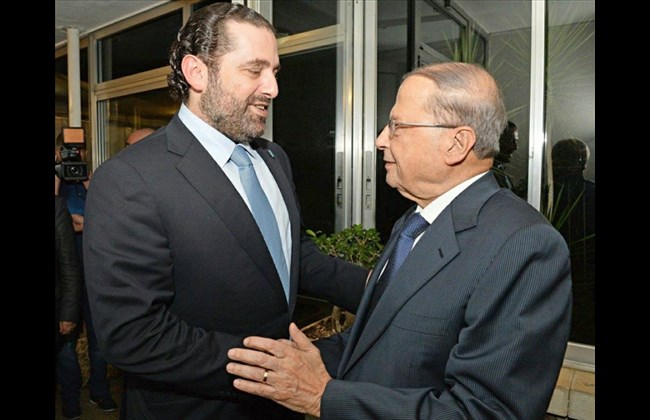Lebanon’s corrupt politicians: All for one and one for all
Dr. Dania Koleilat Khatib/Arab News/December 27/2020
د. دانيا قليلات خطيب: السياسيون اللبنانيون الفاسدون: الكل للواحد والواحد للجميع
On Christmas eve, Prime Minister-designate Saad Hariri wished the Lebanese people a merry Christmas — and the formation of a government that the Lebanese deserve, that will stop the economic crash and allow the country to recover from the port blast.
Despite many visits to the presidential palace, and although both Hariri and President Michel Aoun have said that their objective is a government of qualified technocrats in line with the French initiative, a government has still not been formed.
The stated objective contradicts the political reality, which is why we have a deadlock.
To start with, despite being on different sides politically, all politicians profiteer from the system and have benefited from the spoils of corruption. Each one of them has a case against the others, so they will not allow one party to be in power while they are out, especially now that one of the stated objectives is to fight corruption.
They are all interconnected and no party will gracefully exit the scene and leave their opponents to pillage the country on their own.
Unfortunately, this is the mentality. They are in a precarious position, so their only guarantee of survival is to remain in power, which takes the country back to square one. Also, the international community has lost faith in the current political class, who have embezzled aid over the years.
The president has designated Saad Hariri to form a government, but it is unlikely that the political elite will allow him to form an administration of clean technocrats untainted by politics.
The current political elite are like Ali Baba and the Forty Thieves, all partners in crime against Lebanon. They will not allow one of their number to defect, leave the pack and act on his own. If reforms were truly initiated and forensic audits conducted in government ministries, most of the political class would be convicted, if not all. That is why the politicians in Lebanon are all for one and one for all.
The logical and conventional solution would be for the “hirak,” the protest movement, to prepare new figures to run for office, but elections are 15 months away and the country is in freefall. Delaying reforms for so long could be lethal.
Also, Lebanon risks going back to the Hassan Diab scenario, a government of pseudo technocrats providing a cover for the political elite. The question is, what is the solution? How can this deadlock be broken? Already three leaders have called on the president to resign, each for their own reasons. Samir Geagea, head of the Lebanese Forces, said if he were in Michel Aoun’s shoes he would step down.
The calls for the resignation of the president could be the start of a solution. The deteriorating economic situation, the political deadlock and the popular and international distrust in the political class can be solved only by a transitional government.
Despite many visits to the presidential palace, and although both Hariri and President Michel Aoun have said that their objective is a government of qualified technocrats in line with the French initiative, a government has still not been formed.
The 1952 scenario may present a solution.
Facing popular wrath and in order to save Lebanon from armed conflict, Bechara El-Khoury resigned as president and asked the commander of the army to become acting president and head of a transitional government that prepared for new elections, in which Camille Chamoun won the presidency.
The army is the only institution that people respect and trust. It represents the Lebanese across the different sects.
This scenario would not mean that the country would be governed by the military, but it means the possibility of having a government of technocrats from outside the political class. However, for the political class to agree on leaving would be like signing their own death warrant.
In this case negotiations, pressure and pragmatism should be applied. Though Lebanese people have pledged “never to forget or forgive” and the elite have lost a large part of their following, they still have a constituency that can take to the streets and is willing to carry arms.
The corrupt politicians will mobilize their base if they know that their survival is at stake. This is why they should be offered a graceful exit.
Though this may seem unfair to the average Lebanese, politics is the art of the possible. Sanctions under the Magnitsky Act should be used to exert pressure on politicians to leave the scene and return a large part of the embezzled funds in exchange for immunity from prosecution.
Once they leave, the void would be filled by a transitional government headed by the commander of the army and comprising non-politicized technocrats who will conduct reforms and prepare for new parliamentary elections, following which a new president is elected and a new government is formed.
The transitional period should not exceed two years. If this scenario is adopted there is hope for the resurrection of Lebanon; otherwise the country is heading toward a total crash.
*Dr. Dania Koleilat Khatib is a specialist in US-Arab relations with a focus on lobbying. lobbying. She is co-founder of the Research Center for Cooperation and Peace Building, a Lebanese NGO focused on Track II. She holds a Ph.D. in politics from the University of Exeter and is an affiliated scholar with the Issam Fares Institute for Public Policy and International Affairs at the American University of Beirut.























